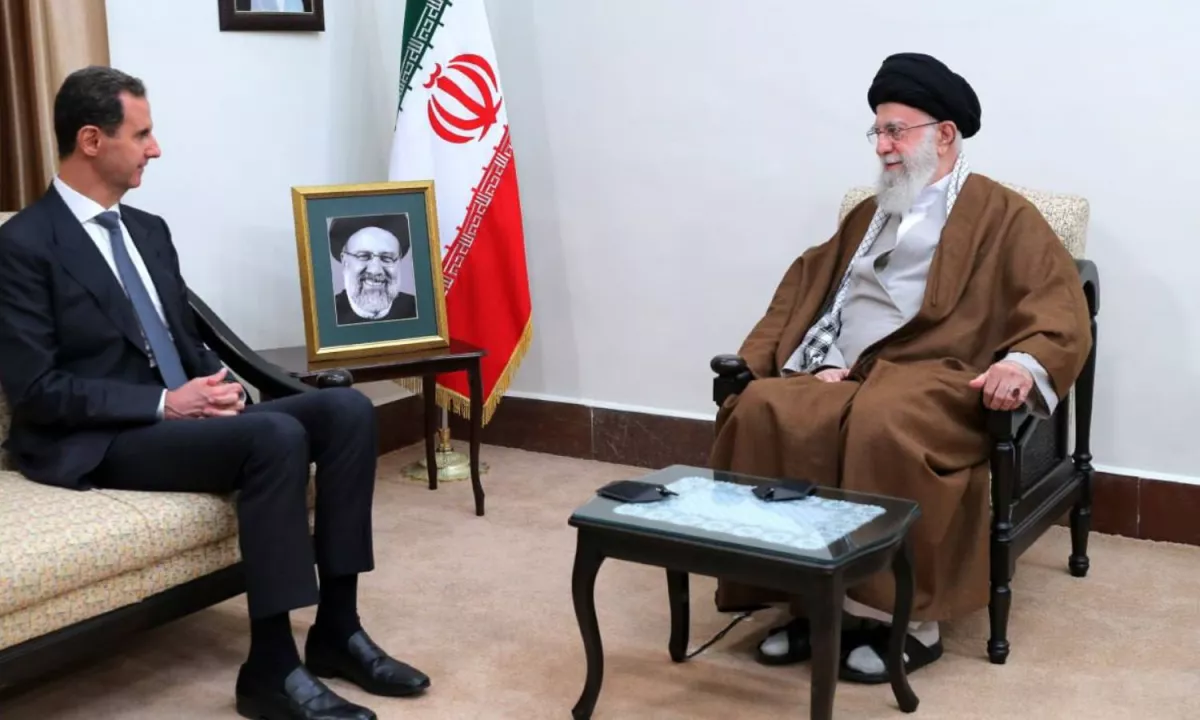Iran conflict reveals degree of Syria's foreign policy realignment
A 12-day war between Israel and Iran has underscored how much Syria has shifted away from its role as a close Iranian ally and moved instead toward alignment with US President Donald Trump’s administration as their interests in many matters seem to overlap at this very moment. As the ceasefire settles between Iran and Israel, though on shaky grounds, the extent of the damage inflicted on the Islamic Republic further dims the possibility of Tehran regaining the stronghold it once held in Syria under the now-deposed leadership of President Bashar al-Assad.
Strategically located in the Middle East, Syria sits at the intersection of Iranian, Israeli, Turkish, and American interests. For over a decade, the country has been torn apart by internal divisions and civil war, which has seen involvement by regional proxies and globally designated terrorist organizations like Islamic State and Al-Qaeda.
While many Arab states were quick to condemn US and Israeli attacks on Iran’s nuclear infrastructure and advocate for diplomacy, an article by Newsweek noted Syria’s silence in a recent report, marking a notable shift.
President Ahmed al-Sharaa, a former affiliate of ISIS and Al-Qaeda who has renounced jihadi ties in recent years and is undergoing a period of political rehabilitation as he vowed to continue efforts to battle ISIS within his borders, remained silent on the recent strikes.
Gulf nations traditionally aligned with Washington in countering Shiite Iran’s influence across the region are treading carefully, wary of provoking retaliation and escalating into a wider war. For Syria, however, which is largely Sunni but was ruled for decades by the Assad family that are of Alawite origin, an offspring of early Shi'ism, analysts argue the removal of one of its two long-standing adversaries — whether Iran or Israel — opens up space for it to reassert sovereignty and influence.
"The interim government in Syria has been relentlessly pragmatic in cultivating ties to the US," Steven Heydemann, Nonresident Senior Fellow at the Center for Middle East Policy at the Brookings Institution, told Newsweek.
The conflict saw intense aerial operations over Syrian skies, with Iranian drones and missiles intercepted by Israeli and US defenses. The Syrian Observatory for Human Rights (SOHR) reported that 69 Iranian drones were brought down in Syrian airspace during the fighting. One of those intercepted drones crashed in the village of al-Asha in Syria’s southern Quneitra province, injuring a child, according to SOHR earlier this week.

For many within Syria, these events serve as a painful reminder of the country’s history as a battlefield for proxy wars under the Iranian and Russian-backed Assad regime. Following the ouster of Assad in December 2024 by rebel group Hayat Tahrir al-Sham (HTS), led by Ahmed al-Sharaa, the new Syrian leader condemned Iran’s presence.
He characterized Tehran’s decades-long influence as a “disease,” voicing a clear departure from the country’s past alignment with the Islamic Republic that stemmed mainly from it's Alawite leadership.
"This multi-directional escalation reinforces the reality of Syria as a proxy battleground, where the interests of major powers intersect and regional agendas clash, while the Syrian citizen remains trapped between the lines of fire, with no real protection and no political horizon in sight," SOHR noted.
Meanwhile, US troops stationed in Syria’s northeast bolstered their positions in Hasakah, anticipating possible Iranian reprisals after the coordinated Israeli and American strikes. Israeli air forces continued to operate in and around Syrian airspace during the hostilities.
"Syria is one place that Iran could use to retaliate against its enemies," Director of Policy Analysis Department at Harmoon Center for Contemporary Studies Samir Alabdullah told Newsweek.
Under President Trump, US policy toward Syria shifted dramatically, including a meeting with Syrian leader Ahmed al‑Sharaa in May and the lifting of sanctions. Although al‑Sharaa has criticized Israeli expansion into Syrian territory, he depends heavily on US sanctions relief and investment to rebuild Syria and solidify his rule.
“Taking a stance against Israel might jeopardize that,” said analyst Samir Alabdullah.
Militarily weak, Syria cannot deter Israel and al‑Sharaa avoids provoking anti-Israel factions. According to a Reuters report, he even held secret talks with Israel via a UAE backchannel ahead of Trump’s visit, signaling Syria could be a future Abraham Accords signatory.
By Nazrin Sadigova








